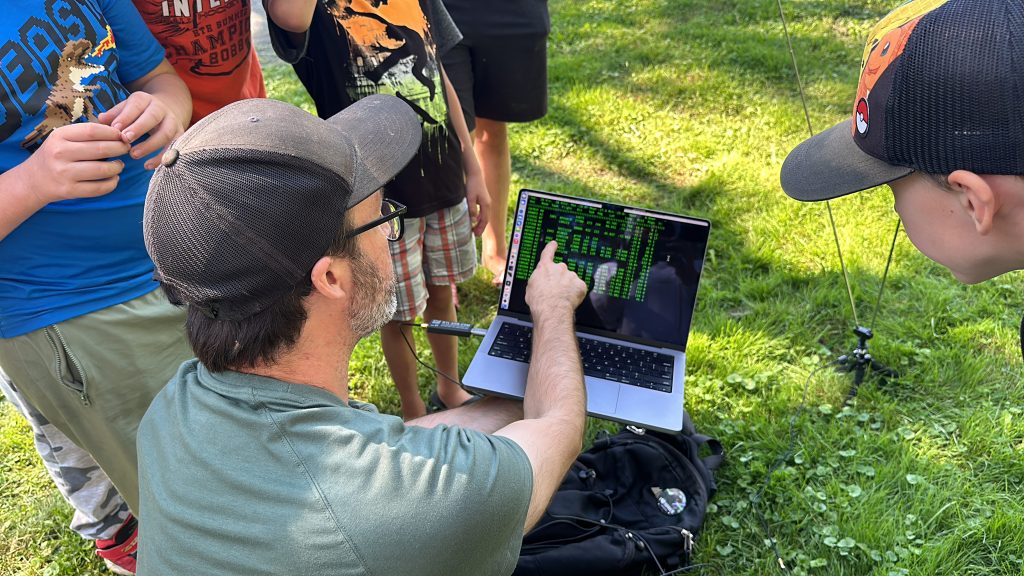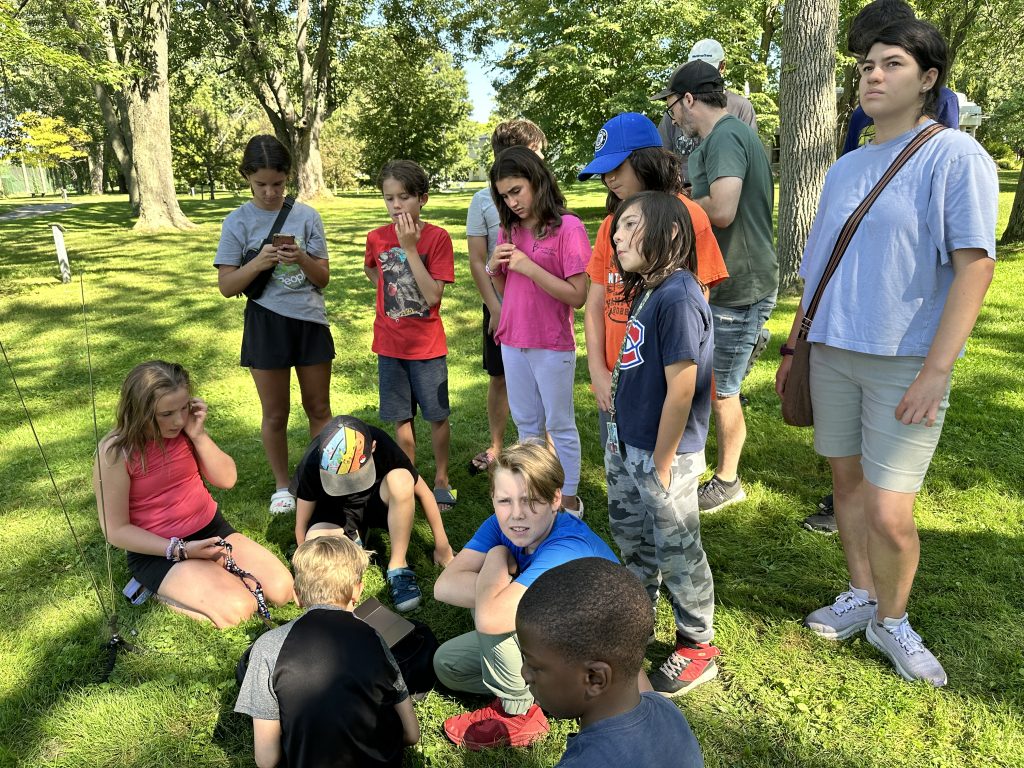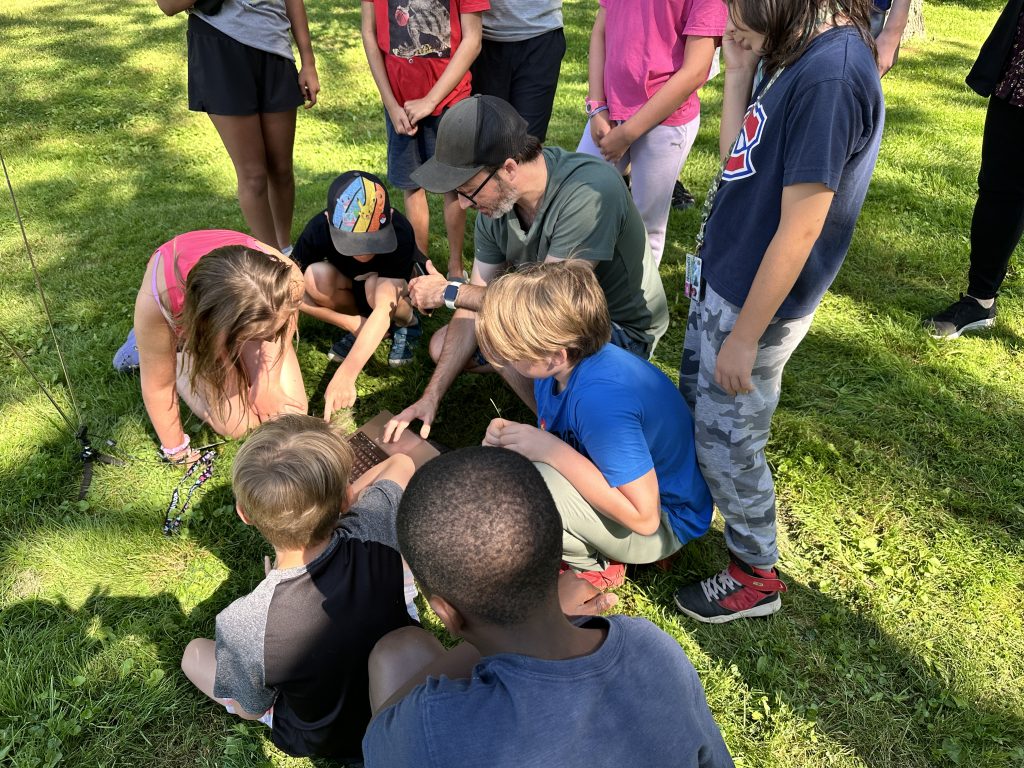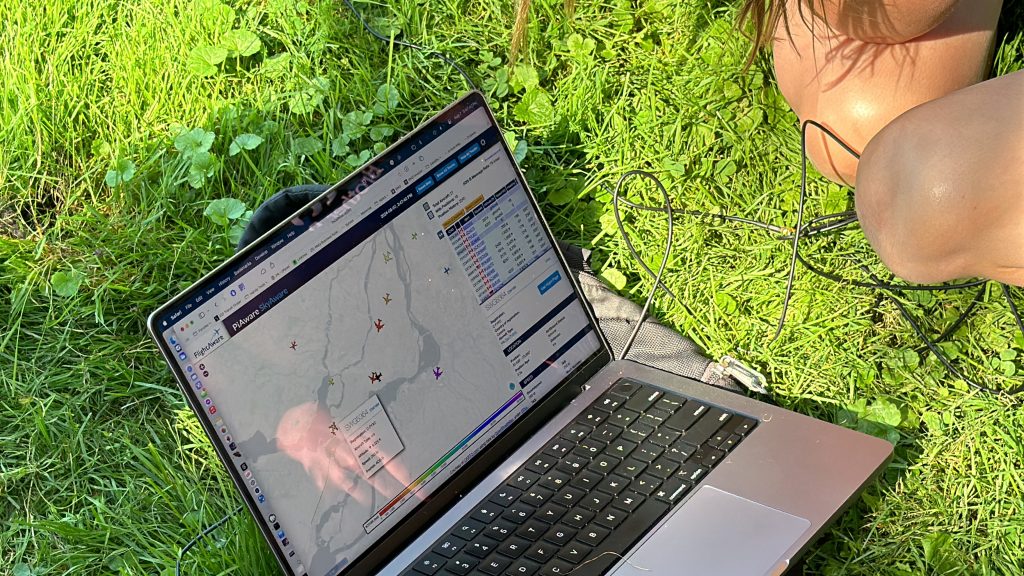It can be tricky keeping young teens engaged over the summer.
Dorval Library’s TD Summer Reading Club has come up with an “out of this world” workshop.
Literally. They partnered with Plateau Astros as part of their lineup of space-themed activities.
The youth learned how to contact a weather satellite using basic radio techniques, then decoded its message to create their own satellite image directly from space.

Dorval resident Daria shared that she learned “the people on the ISS, saw a sunrise and sunset 16 times a day.”
Trevor Kjorlien from Plateau Astro put on a workshop for members of the Dorval library TD Summer Reading program.
He demonstrated how to connect to the weather satellite using an old television antenna and no internet.

Guy Vezina is a Dorval parent. He attended the workshop with his two children.
Vezina said, “the Dorval Library offers some great workshops, and we received the city newsletter just recently and my kids have had a fascination with space since they were even younger than they are now. And so we thought we’d come.”
Daria loved to share that she could hear what the astronauts on the ISS were saying.
Trevor Kjorlien runs astronomy workshops, presentations and mobile planetariums through Plateau Astro.

He says, “for a few years, I’ve been showing people how to see the International Space Station with the naked eye at night time. And recently, I started getting into radio, amateur radio, and being able to get a signal from the space station. So tracking weather satellites was sort of a natural extension of that.o using radio antenna and getting a signal as the orbiting satellite goes overhead.”
When Vezina saw Kjorlien pull out the rabbit ears to track the satellites, he felt bad, because he just threw out my rabbit ears a couple of years ago.

Vezina thought it was “really neat to see how he would track the satellites not using the web, just using essentially analog and digital technology. It was really cool.”
Kjorlien explains, “I think kids know that wireless stuff is around them all the time.
“They see smartphones, they use Wi-Fi, GPS, but only they really get a hands-on sense of how some of that works. So hopefully this shows them what radio frequencies are, what those different numbers sort of means, how terrestrial radio actually works. And so hopefully today they got some experience using the antennas, extending it, and being able to actually make contact with the space station, satellite, and planes at the end of the day.”